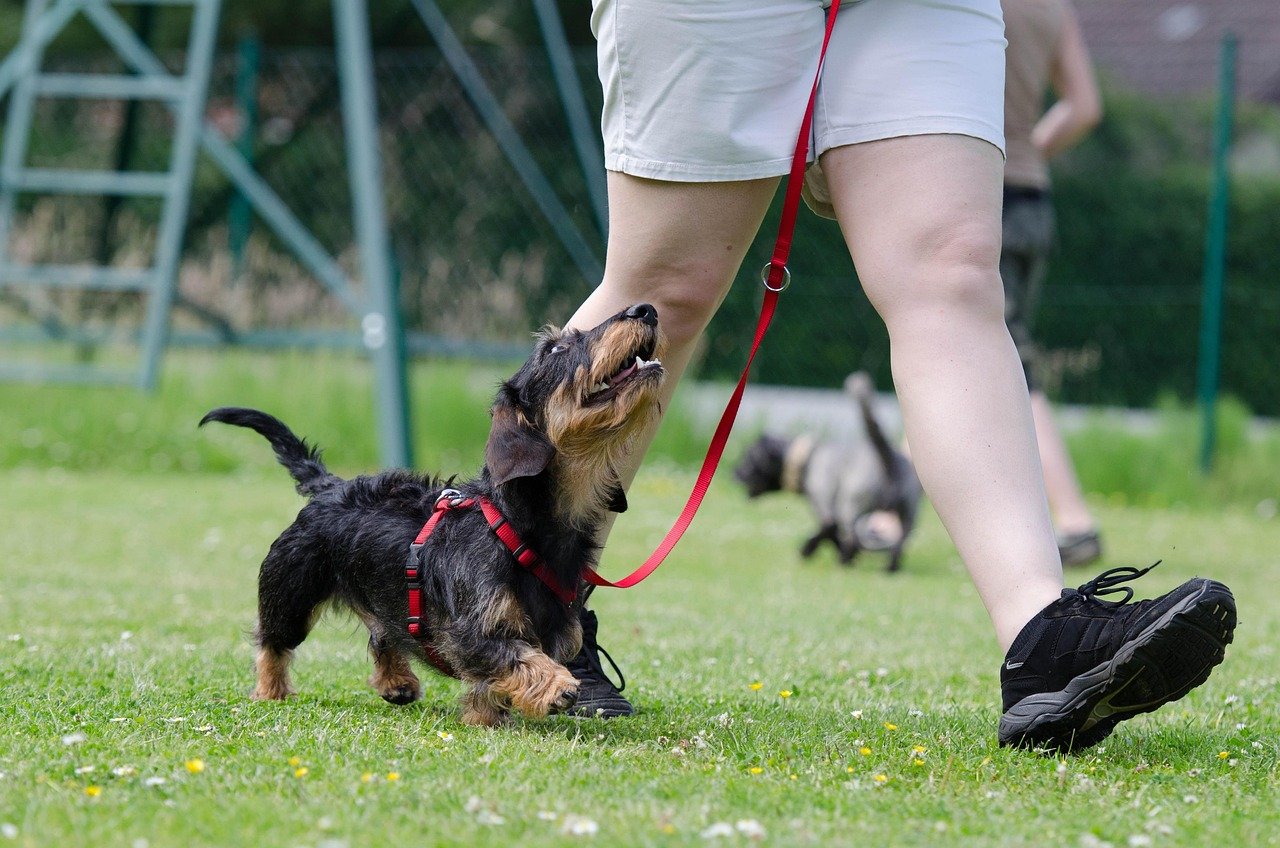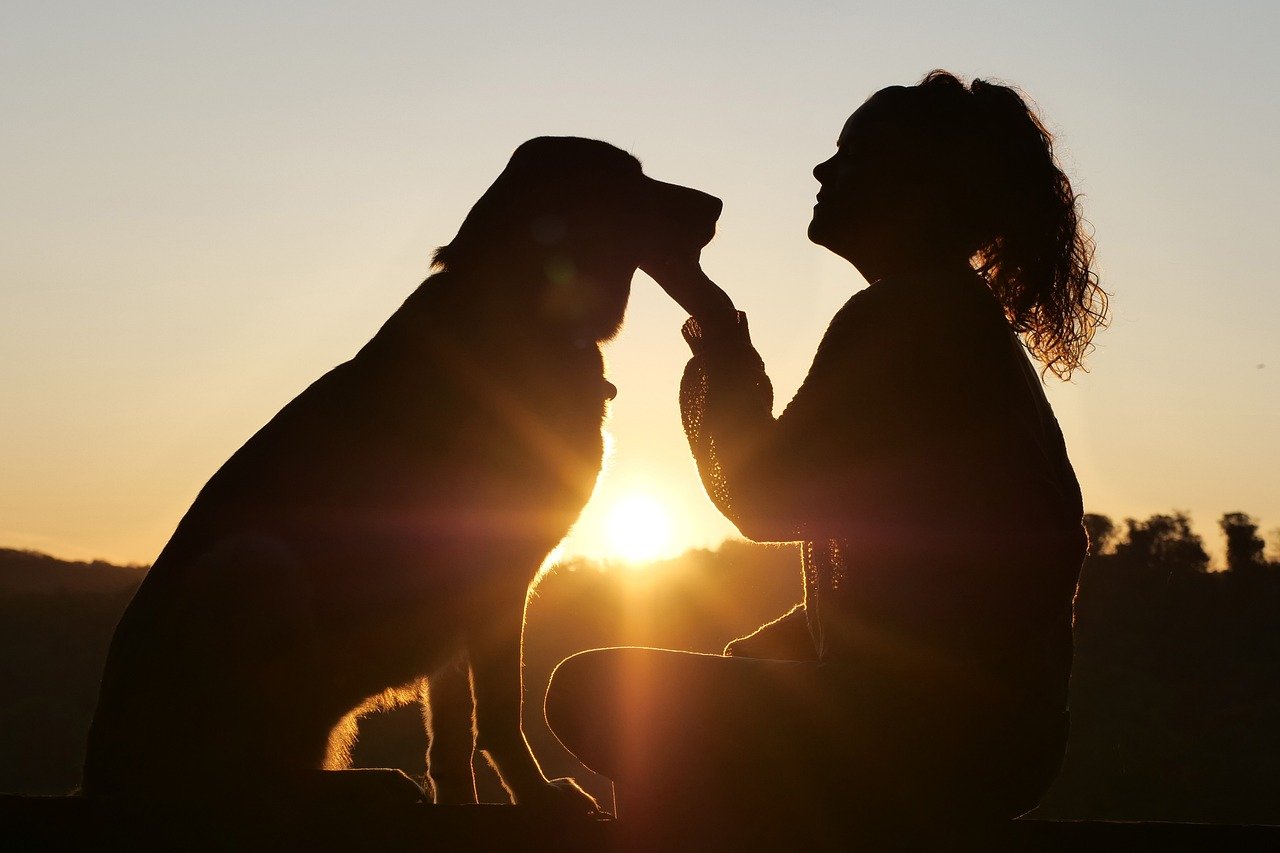Have you ever looked into your dog’s eyes and wondered if they’re truly happy? Most of us see our furry friends as bundles of joy, but sometimes, without even knowing it, we might be making choices that chip away at their happiness. It’s a gut-wrenching thought for any dog lover. Dogs are experts at hiding their feelings, and their sadness doesn’t always show up as whining or tail-tucking. Sometimes, it’s in the little things we do—or forget to do—that can leave our best friends feeling lonely, bored, or misunderstood. Let’s uncover some of the surprising ways you might be affecting your dog’s happiness, and see what changes you can make to ensure their tail keeps wagging.
Skipping Daily Walks and Exercise
Dogs aren’t meant to lounge on the sofa all day, even if they look adorable doing it. Skipping daily walks can rob them of both mental and physical stimulation. Imagine being cooped up in one room for days; it would drive anyone a little stir-crazy, right? Regular walks aren’t just for bathroom breaks—they allow your dog to see, sniff, and explore the world. Without this, they can become bored, anxious, or even develop destructive habits like chewing furniture or excessive barking. It’s not about the distance, but the quality of the adventure. Even older or smaller dogs need a taste of the outdoors. If life gets busy, try short but frequent walks or let them sniff around the yard. It’s their version of scrolling through social media—a daily must!
Leaving Them Alone for Too Long
Dogs are pack animals, and being left alone for hours can feel like a punishment. While it’s normal to have work or errands, long stretches of solitude can lead to separation anxiety and depression in your dog. You might come home to shredded shoes or accidents—not out of spite, but because they’re overwhelmed by loneliness. Even the most independent breeds crave companionship. If your schedule is demanding, consider hiring a dog walker, asking a neighbor for help, or using doggy daycare now and then. Sometimes, leaving a piece of your clothing with them can help, but nothing compares to your presence. A dog left alone too long is like a plant locked in a closet—eventually, it wilts.
Ignoring Their Communication Signals

Dogs speak volumes without words. They use body language, barks, whines, and even sighs to express their needs. If you ignore these signals—like a wagging tail asking for playtime, or a tucked tail showing fear—your dog might feel unheard or stressed. Over time, they may stop trying to communicate altogether. This silence isn’t peace; it’s resignation. Pay close attention to their cues. Is your dog licking their lips or yawning when you introduce them to new people? Maybe they’re uncomfortable. Responding to these signals builds trust. Treat your dog’s communication like you would a friend’s—listen, observe, and respond with kindness.
Not Providing Enough Mental Stimulation

Just like people, dogs get bored. If their day-to-day life lacks variety, their minds can become dull, leading to restlessness or mischief. Mental stimulation is as vital as physical exercise. Puzzle toys, scent games, and basic training sessions challenge their brains and keep them sharp. Think of it as crossword puzzles for canines. Dogs who don’t get enough mental activity may dig holes, bark excessively, or seem restless. Spice up their routine with new toys, obstacle courses, or hide-and-seek games. Even switching up your walking route can give them something new to sniff and think about. A mentally enriched dog is a happy, content companion.
Feeding an Inappropriate Diet
You might not realize it, but what you put in your dog’s bowl has a huge impact on their mood and health. An inappropriate diet, whether it’s too much, too little, or the wrong kind of food, can leave your dog feeling sluggish or irritable. Some dogs develop allergies or digestive issues that go unnoticed, making them uncomfortable and unhappy. Check that your dog’s food meets their age, size, and activity level. If you notice changes in their coat, energy, or bathroom habits, it might be time for a diet check. Sometimes, the fix is as simple as adding more variety or switching to a higher-quality brand. Feeding your dog well is an act of love that shows in every wag.
Neglecting Socialization Needs

Dogs are social creatures, not just with humans but with other dogs too. Failing to expose them to new people, pets, and environments can lead to fear, anxiety, or aggression. A dog that only knows their own backyard may become nervous or reactive in new situations. Socialization doesn’t mean forcing them into overwhelming situations. It’s about gentle exposure and positive experiences—like meeting friendly dogs at the park or having calm visitors at home. I remember my own dog’s first trip to a café; at first, she was shy, but over time, she began to greet waiters with a wag. Every new encounter is a chance for your dog to grow more confident and content.
Using Harsh Discipline or Punishment

Raising your voice or using harsh discipline can shatter your dog’s trust. Dogs don’t associate punishment with the action you’re upset about—they just feel scared or confused. This can lead to anxiety, fearfulness, or even aggression. Training should be built on patience and positive reinforcement, not intimidation. Rewarding good behavior with treats or praise teaches your dog what you expect, while punishment only teaches them to fear you. It’s like correcting a child’s homework with encouragement instead of scolding. Remember, your dog wants to please you—they just need gentle guidance to figure out how.
Overlooking Health Problems or Pain

Dogs are masters at hiding pain. What might look like laziness or crankiness could actually be a sign of discomfort. Common issues like arthritis, dental pain, or ear infections can silently sap their happiness. Regular vet check-ups are essential, but you also have to be observant at home. Watch for changes in appetite, movement, or mood. A limp, a reluctance to jump, or even bad breath can signal trouble. Addressing health problems quickly can restore your dog’s comfort and cheerfulness. Don’t assume they’re “just getting old”—sometimes, a little extra care can bring back their puppy-like zest for life.
Failing to Set Boundaries and Routines
Dogs thrive on routine and clear boundaries, just like kids do. Without them, life can feel unpredictable and stressful. If your dog never knows when they’ll eat, go outside, or get attention, it can create anxiety. Consistency helps your dog understand what’s expected and makes them feel secure. Setting boundaries—like not letting them beg at the table or jump on guests—gives them a sense of structure. It’s not about being strict, but about providing stability. Even small routines, like a nightly cuddle or morning walk, can anchor your dog’s day and make them feel loved and safe.
Missing Out on Quality Time and Affection

Have you ever been so busy that you barely noticed your dog at your feet, waiting for a pat or a kind word? Dogs crave your attention and affection. Missing out on these moments can make them feel invisible and unloved. Simple acts—like a gentle rub behind the ears, a playful game of fetch, or just lying beside them—mean the world to your dog. Quality time doesn’t have to be elaborate; it just needs to be genuine. Your dog doesn’t care about fancy toys or expensive treats—they want you. Make time for those special moments. You’ll notice, their happiness is contagious.

Born and bred in South Africa, a Capetonian at heart. Amy-Leigh’s love for nature and animals was inherited from her Dad. He loves taking the family on road trips to experience nature at its finest; Amy-Leigh’s favourite being whale watching in Hermanus and spotting Kudu along the West Coast. Amy-Leigh holds a BA in English Literature and Communication Studies.





